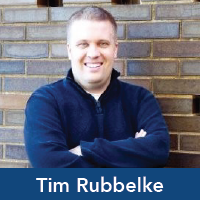Hopefully the pandemic is not here to stay, but even when it’s gone, I suspect work from home for research administrators will stay in one form or another for many people. Which brings us to the 2021 Social, Behavioral, and Educational Research Conference networking session on running a virtual HRPP and why I was very much looking forward to it.
If you read my introduction post, you may note that I don’t work in an HRPP, but rather a conflict of interest (COI) program. Nevertheless, I was looking forward to this session because I knew it would still be incredibly applicable to my program. At a mile high level, there’s actually a lot of overlap between HRPP, IACUC, and even COI programs! Having worked for all 3 at various points in my career, while the processes differ in specifics and focus, they share many of the same problems: collecting information from and educating faculty and staff, preparing that information for committees to review, communicating, and following up on the outcomes of those reviews. All of this is situated in a team setting, though those teams may vary wildly in size.
The Zoom format of this session provided a chance for us to hear from multiple institutions about the various growing pains with converting to a virtual program. While there isn’t space here to cover everything, I wanted to highlight a few key things that stuck out.
One of the more shocking things to me was the number of people who said their programs would be either fully remote or flex going forward even after the pandemic ends. Universities always seemed short on space, so this shouldn’t have surprised me, but I don’t think it’s sunk in yet. My own program will be adapting a flex work model of 2 days in the office and 3 days at home. I don’t think I’ve fully internalized this change yet, but seeing other programs move in the same direction was helpful to me.
It was also comforting, in a way, to hear several other programs suffered the same conversion to work from home problems as we did. While we, like many other institutions, have a largely “paperless” system to perform our reviews, there still was reliance on paper tracking sheets and paper review files in day-to-day processes. This discrepancy between the system in theory and the process in practice seemed common among people participating in the discussion. We’ve all now been forced to give up these last holdouts of the “dead tree” elements of our processes. Though, I still write my personal notes from meetings or reminders to myself on a pad of paper, and that’s unlikely to change.
One positive report from many participants was that faculty seemed to prefer virtual committee meetings. They fit better into their busy schedules, and attendance was up broadly without a significant hit to engagement. Even if a program was coming back to campus, it seemed like virtual committee meetings were here to stay (with some grumbling over lost food). Anecdotally, when I’ve had to have meetings with my faculty for follow up information, there’s been broad acceptance of Zoom as a venue. Some even seem to prefer it because it takes less time away from the lab, or clinics. If a meeting requires multiple participants, they can be in different locations. You can be working right up until the meeting begins and immediately go back to working without traveling.
Even 2 years in, things will continue to change, with more adjustments made to our programs as we continue to adapt to changing work environments. As we go forward, talking with peer institutions and sharing ideas will be essential. And more essential may be the talking intra-institutionally, to adapt practices from other groups at your institution to your own program. Because in the end, it’s not just the HRPPs going virtual: the entire research administrative enterprise is in this virtual world with them.
 Tim Rubbelke, PhD, is the Senior Research Compliance Specialist in the Research Conflicts of Interest program at Washington University in St. Louis. He assists the Conflict of Interest Review Committee in the assessment and management of complex cases of financial conflicts of interest, including those related to startups commercializing university-owned IP. Tim has a PhD in Health Care Ethics from St. Louis University, focusing on both human subjects and animal research ethics.
Tim Rubbelke, PhD, is the Senior Research Compliance Specialist in the Research Conflicts of Interest program at Washington University in St. Louis. He assists the Conflict of Interest Review Committee in the assessment and management of complex cases of financial conflicts of interest, including those related to startups commercializing university-owned IP. Tim has a PhD in Health Care Ethics from St. Louis University, focusing on both human subjects and animal research ethics.


No comments! Be the first commenter?